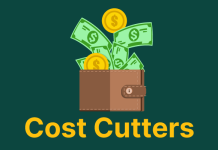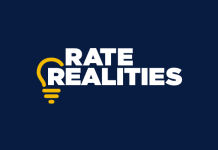This article first appeared in The Sacramento Bee.
California is the land of opportunity because we were opportunistic. By luck, agility or careful planning, we transformed events to our advantage.
California grew as Depression-era migrants, demobilized veterans and immigrants provided the tough labor for an astonishing agricultural cornucopia and became the backbone of one innovative success after another.
Another globally transformational event arrived in 2020. California’s residents and institutions, especially low wage and often low-skilled workers in public-facing businesses, have suffered greatly from the COVID-19 pandemic. These jobs and businesses will not reappear until commerce is healthy again.
The pandemic will eventually fade. But even as our society recovers, the crisis is reshaping the state, accelerating trends and widening uncertainty.
State leaders must stop taking California’s prosperity for granted.
California’s past success had many parents. Our policy inheritance was a clear-eyed embrace of progress and opportunity, meeting the moment with investments in world-class higher education and transportation, and entrenching a legal infrastructure that fostered competition in employment relationships, seeding thousands of innovative firms.
More recently, this multi-generational success has led policy makers to treat California as a “luxury good,” assuming residents are willing to pay a premium to live here. This attitude has spawned expensive and divisive policy initiatives that serve political constituencies and cultural trends, but don’t register with residents and taxpayers.
If ever California was a luxury good, we’ve long since priced ourselves out of the market.
Sunbelt states are welcoming middle class Californians with affordable homes, lower taxes and more value for their earned income. Even some of the most venerable names from California’s high technology sector have left the state for less regulation.
The path to success is becoming more competitive — and California is falling short.
The California luxury tax falls hardest on poor and working Californians. We have among the highest utility rates, gasoline prices, housing and rental costs, consumer taxes and insurance premiums in the nation — and public policy is making it worse.
Economic opportunity and social justice begin with ensuring a quality education for children, but California falls far short, with white and Asian American students achieving proficiency at four to five times the rate of Black and Hispanic students. These achievement gaps are immoral and an existential threat to California’s economy, since these children are the state’s future workforce.
The most unfair luxury tax on working Californians is the cost of housing. State leaders have spent the past decade nibbling at the edges of the housing crisis — when they weren’t making it worse. Elected officials must engage in an all-fronts supply-side campaign to ease the cost of buying or renting shelter.
California’s private sector generates opportunity throughout the income spectrum, but without public policy changes that opportunity will remain locked away for many.
The safest prediction for the future is that California’s workplace and lifestyle arrangements remain in flux.
Employers fortunate to deploy their workforce from home suffered less — some even thrived during the pandemic. While many at-home workers face child care or student supervision challenges, severe unemployment passed over remote workers.
Nobody knows the scope and extent of new workplace provisions, but public policies based on traditional work arrangements may become partially obsolete.
For example, telecommuting enabled parents to support their distance-learning children while still maintaining a job. Existing state laws, which do not provide the necessary flexibility for employers to accommodate parents’ scheduling challenges, should be updated so employees can meet work and home demands.
“The dogmas of the quiet past are inadequate to the stormy present,” President Abraham Lincoln said to Congress in 1862. “As our case is new, so we must think anew and act anew.”
The dogmas of California public policy are luxuries we can no longer afford. The price has become too high — in thwarted opportunity for youth, fleeing businesses, the squeezing of the middle class and weakening social cohesion.
Loren Kaye is president of California Foundation for Commerce and Education, a think tank affiliated with CalChamber.


